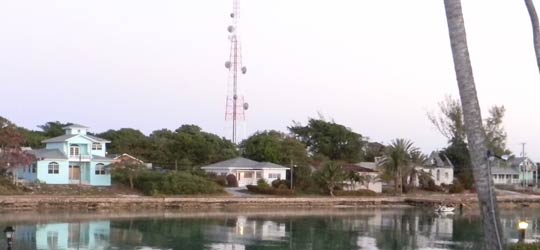
Andros, The Bahamas – Plagued by generations of double standards, Central Andros natives can now claim Crown Land, in which they can prove they have a vested interest under the 2010 Land Adjudication Act. The 2010 Planning and Subdivisions Act will also empower their right to build on the land legally and retain equity and market value.
“In Andros, most of the land is owned by the State and there’s very little privately owned land. So hence, the residents find it difficult to engage in any kind of expansion of the communities in which they live, whether it’s for private residence or for business purposes,” said Central Andros Administrator, Oscar Monroe.
“Because of that you find there’s a practice whereby people arbitrarily just build on Crown Land with the hope that they will be able to at some point get some type of title to the land. But it’s a problem in that, in order for them to build, there are certain requirements to get a building permit. One of those requirements will be that they will have to show proof of ownership of the land. This presents a problem in that most of the time they build without coming forward. And then there’s a difficulty in regulating because sometimes they build by the building code or sometimes they didn’t.”
The 2010 Planning and Subdivisions Act will take effect in January 2011, ending an era of ambiguity and confusion. The Act will clarify health and safety measures to protect Central Androsians and all Bahamians, who have been simply trying to empower themselves. It offers a clear legal framework with a list of guidelines, of which these Bahamian investors have been unaware.
“You would know that a building is progressing, when the investor goes to BEC to get electricity and they need an occupancy certificate. In order to get that, they will come in and everybody expects you at the time to understand they have invested in this property, and this is the norm, and most cases they just expect for it to be business as usual, that you turn a blind eye and give them the occupancy certificate,” said Mr. Monroe.
Mr. Monroe spoke in general regarding the local land disputes presented before him, as a Family Island Administrator. He said the issues are deep-rooted because Central Androsians expect fairness and want equal treatment under the law. Residents are offended that land ownership was a privilege, previously granted to others in the past and not extended to them.
“Most of the land is Crown Land and these settlements have been going on for many, many years. There were other people who were able to do it and found that they were able to get regulation after a while. So hence, everyone feels that it should be the norm,” said Mr. Monroe.
The new amendments will help residents to comply with Government building codes easier and will dismiss the established tradition of manipulating the Quieting Titles Act to acquire land in which they have invested. At least, 80 percent of the land in Andros is Government owned, including land protected by the Bahamas National Trust for sustaining national biodiversity.
The 2010 Forestry and Planning & Subdivisions Act bring the unaddressed issues from the court of public opinion back into the courtroom.
“It forces us to look into the situation and perhaps from the Town Planning side of it, we would have to make land available to the residents. We would have to actively survey the lands that people have been building on, and making sure that some title is forthcoming. Land would also have to be made available for future growth,” said Mr. Monroe.
All cases have proven residents invested heavily to develop the Crown Land, and no effort has been made to date to empower these Bahamians, who have everything to lose without the protection of the Government. Mr. Monroe also spoke about how the laws will protect wildlife from human interference.
“There has been a lot of research going on about Andros from the local and international perspective. The Blue Holes were widely publicised by National Geographic magazine. You can catch crabs in those areas, but you cannot build there because those areas are reserved for sustainable growth of the crabs,” said Mr. Monroe.
“We are well aware that man’s activities can have an adverse effect on the population of the different species that are found here.”
Mr. Monroe describes Andros as a flat land with many wetlands. He said it is a rich land as far as natural resources are concerned with numerous species of birds, such as flamingoes, and other animals, such as iguanas, as well as a large colony of crabs. The island is also attractive to Bone-fishing sports enthusiasts for catch and release exercises. Most Central Androsians live along the eastern coast of Andros due to its proximity to New Providence.
The Bahamas National Trust (BNT) has made its presence known throughout Andros and spreading the message that protecting the survival of biodiversity requires, not disturbing their habitat.
By Gena Gibbs
Bahamas Information Services



